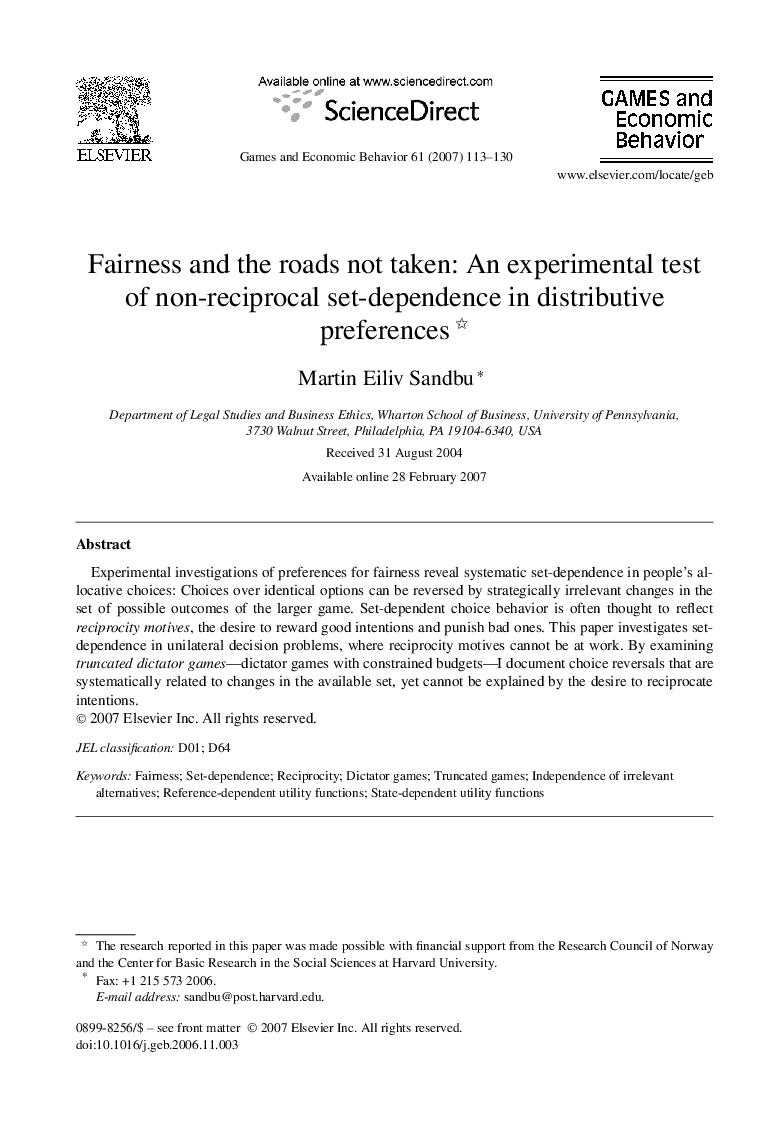| Article ID | Journal | Published Year | Pages | File Type |
|---|---|---|---|---|
| 5072777 | Games and Economic Behavior | 2007 | 18 Pages |
Abstract
Experimental investigations of preferences for fairness reveal systematic set-dependence in people's allocative choices: Choices over identical options can be reversed by strategically irrelevant changes in the set of possible outcomes of the larger game. Set-dependent choice behavior is often thought to reflect reciprocity motives, the desire to reward good intentions and punish bad ones. This paper investigates set-dependence in unilateral decision problems, where reciprocity motives cannot be at work. By examining truncated dictator games-dictator games with constrained budgets-I document choice reversals that are systematically related to changes in the available set, yet cannot be explained by the desire to reciprocate intentions.
Related Topics
Social Sciences and Humanities
Economics, Econometrics and Finance
Economics and Econometrics
Authors
Martin Eiliv Sandbu,
